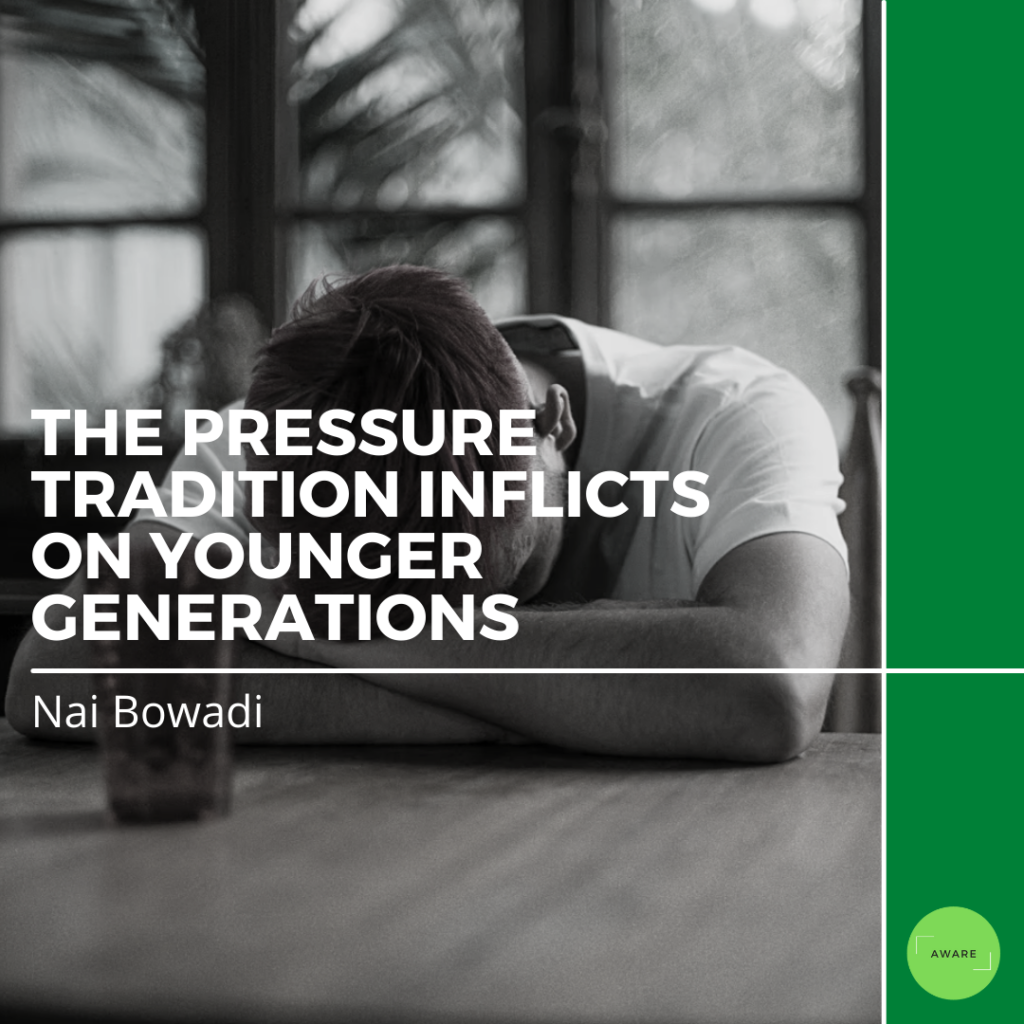Some critics claim that the present age is “traditionless”. However, it is impossible for any age to be completely traditionless. No society or community is capable of maintaining its existence without the benefits of traditions. For example, without traditions and the history of our ancestors, we would not have our own language as Arabs. That is because we certainly cannot create a language of our own without any background to it. However, as much as traditions are vital for any society to stay afloat, they can sometimes be harmful and dangerous. The youthful generation of today is being pressured by the traditions of their communities, which is leading to many damaging consequences.
Traditions May Divert You Away from Being Yourself
Traditions are part of our culture and familial lifestyle. They shape the way we grow up, and they influence the way we think. In many aspects, such shaping and influencing could be beneficial. What is so wrong about engaging in your own personal culture and traditions which make you unique and separate you from other communities? It is beautiful if anything! However, traditions and cultural regulation have their dark side. One downside of many traditions across the globe, including Middle Eastern traditions, is the stereotypes that they enforce. One very popular example is gender stereotypes. Such a typecast creates double standards for women and men and forces them to hide who they truly are just to be able to fit in the traditional framework. In that sense, traditions pressure the younger generation more specifically because our youth love to be free and, in so many ways, their cultural and familial traditions forbid them from expressing themselves liberally.
Traditions May Lead You to Form a Difficult Relationship with Your Family
Any individual from this younger generation is capable of confirming the struggles one could go through if they shy away from the traditions that their family raised them with. One very familiar example within Middle Easterners is marrying outside your community or religion. This act is considered forbidden within Arab society, and many families disown their children if they dare marry or form a relationship with someone that is considered an outsider. Religiously, marrying someone who does not share your same beliefs is often viewed as sinful. However, this issue is not entirely religious. Many Arab families may not be practicing their religion, and yet they forbid their children from marrying someone who is not part of their circle. Such a scenario is entirely traditional and cultural, and it could affect the relationship between the child and his or her parents. Many people have distorted their relationship with their families or started resenting their families and parents due to such an ordeal.
Traditions May Lead You to Live an Unauthentic Life
Because sticking to the traditions that you grew up with ends up resonating within you as a very important matter, it all starts to feel threatening. So many Middle Eastern kids formed a life of their own which was not really their own. They formed a life that pleased their family and community. When staying on track with all the traditions you are familiar with becomes your major goal in life, your authentic dreams and goals evaporate into thin air. Whether it is your career or your love life, even sometimes your choice of friends, all of these aspects in your life end up being led in a way that pleases your family and community traditions and culture instead of pleasing you. You forget who you truly are, and you grow old to realize that you lived an unhappy life.
So, as much as it is important to not forget where you come from and to always appreciate the culture and traditions that make you special, it is also important to acknowledge that you must do what makes you happy. In a lot of situations, you will take decisions that disagree with the lifestyle you grew up with, but that is okay. You have every right to form a life and a character purely of your own.
